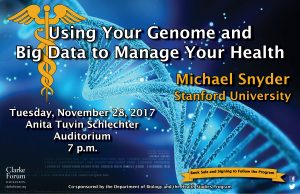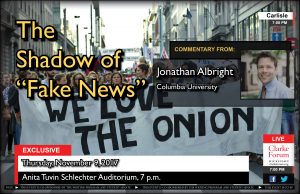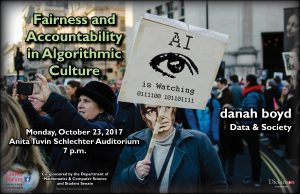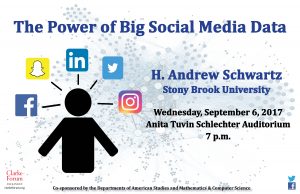Michael Snyder
 Stanford University
Stanford University
Using Your Genome and Big Data to Manage Your Health
Tuesday, November 28, 2017
Anita Tuvin Schlechter Auditorium, 7 p.m.
New technologies that determine DNA sequencing means we can now profile people over time to better predict and diagnose disease. Snyder will share his work in these new technologies and the power they hold to transform how we manage human health. A book sale and signing will follow the presentation.
This event is sponsored by the Clarke Forum for Contemporary Issues and co-sponsored by the Department of Biology and the Health Studies Program. It is also part of the Clarke Forum’s semester theme, Big Data.
 Biography (provided by the speaker)
Biography (provided by the speaker)
Michael Snyder is the Stanford Ascherman Professor and chair of genetics and the director of the Center of Genomics and Personalized Medicine at Stanford University. Snyder received his Ph.D. training at the California Institute of Technology and carried out postdoctoral training at Stanford University. He is a leader in the field of functional genomics and proteomics, and one of the major participants of the ENCODE project. His laboratory study was the first to perform a large-scale functional genomics project in any organism, and has developed many technologies Read more






